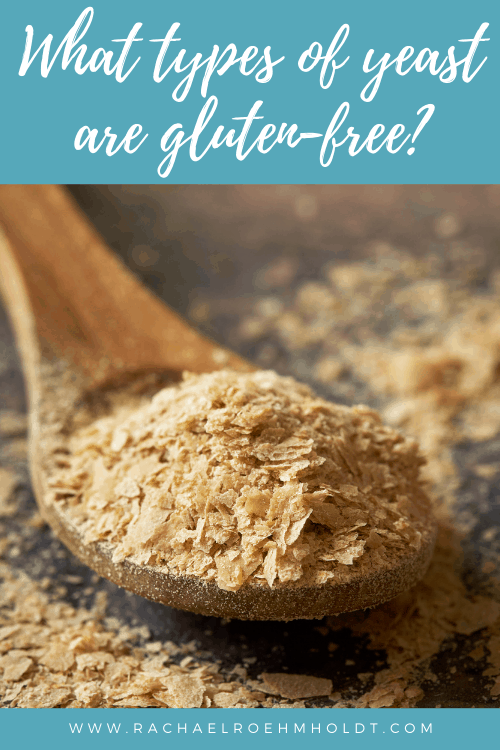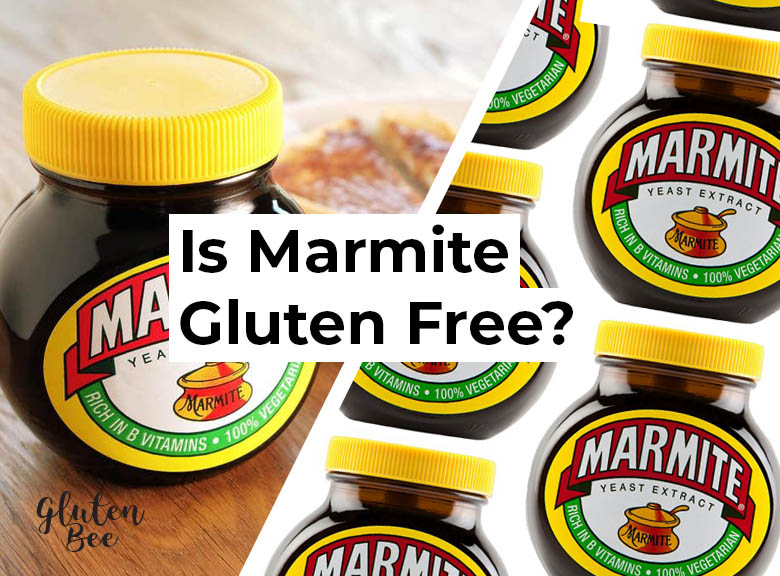
Yeast extract and autolyzed yeast extract may contain gluten from barley. As such it could contain high enough levels of gluten to affect those who have Celiac disease or are extremely sensitive.

In dough made with conventional wheat flour gluten captures carbon dioxide given off by yeast which makes the dough rise.
Does yeast extract have gluten. Yeast extract and autolyzed yeast extract may contain gluten from barley. Manufacturers are not required to disclose the source of yeast extract on the ingredients label so you should only use yeast extract that is labeled gluten-free or confirmed gluten-free by the manufacturer. Is Brewers Yeast Gluten-Free.
Update on gluten-free status of yeast extract Individuals with celiac disease and other gluten-related disorders have long been advised to avoid foods containing the ingredient brewers yeast but not the ingredients yeast extract or autolyzed yeast extract. My current recommendation when either yeast extract or autolyzed yeast extract is listed as an ingredient in foods NOT labeled gluten-free is to contact the manufacturer and ask whether spent yeast from beer manufacturing is the source. Some foods such as cheese canned soups and salty snacks utilize the ingredient yeast extract to create a unique tangy taste.
However yeast extract may not be safe on the gluten-free diet since it can be derived from brewers yeast. It also states that autolyzed yeast extract is also gluten free. I guess in this instance I was better off eliminating it because I wasnt 100 certain but it just goes to show you that you really have to be a detective with some food items and ingredients.
When I go back to the restaurant I will bring this to their attention. As such it could contain high enough levels of gluten to affect those who have Celiac disease or are extremely sensitive. Not all yeast extract will come from the brewing process however so some varieties of this extract are safe.
Be sure to check with the manufacturer directly or only purchase extracts that are clearly marked gluten-free. Brewers yeast may be grown on non gluten-containing growth media including sugar beets. When brewers yeast is used in food as a flavoring agent it is typically spent yeast.
As a result it may be contaminated with small amounts of gluten-containing grain and malt. Yeast Allergy and Infections While the symptoms of a yeast allergy or infection often mimic those of gluten intolerance or celiac disease a different substance sets off these reactions. Yeast is a group of fungi that leavens bread and ferments alcohol.
Besides avoiding yeast you should also avoid all sugars. Per the FDA they do not need to have a label or symbol that states they are certified gluten-free. Gluten-containing ingredients to avoid.
Malt malt flavor malt extract malt vinegar brewers yeast and ingredients with the words wheat barley or. It depends how it is made and what it is made from. The most common brand in the UK of yeast extract is Marmite which is not suitable as it contains more than 20 parts per million ppm of gluten.
Yeast extract contains glutamates which are forms of an amino acid that are found naturally in many foods. Theyre sometimes extracted and used as. Because gluten is key to the structure of yeast bread.
In dough made with conventional wheat flour gluten captures carbon dioxide given off by yeast which makes the dough rise. Without gluten something else must create an expandable yet strong structure that enables bread to rise which is essential for a great loaf of bread. Autolyzed yeast extract and yeast extract may contain gluten from barley.
You should always check with the manufacturer about the gluten-free status of the product if it lists autolyzed yeast extract or yeast extract in the ingredient listing and is not labeled gluten-free as manufacturers are not required to declare barley on the label. Some people believe that people who believe they have milk or gluten allergies might actually be sensitive to yeast. Foods containing yeast are often eaten with dairy and gluten containing foods.
When a person stops eating gluten and milk-containing foods their intake of yeast usually decreases as well and symptoms decrease. If you follow a gluten-free diet youll need to avoid autolyzed yeast extract because its a source of hidden gluten according to Colorado State University. Another possible concern about consuming autolyzed yeast extract is that it naturally contains monosodium glutamate.
Yeast extracts and fermented foods contain glutamic acid free glutamates an amino acid which adds an umami flavor. Glutamic acid is found in meat cheese fungi mushrooms and vegetablessuch as broccoli and tomatoes. This particular form of yeast contains MSG so that may be your problem.
Not gluten but folks can react to it. Ive heard that utensils can retain gluten on them particularly if they are scratched. I hope you get feeling better soon.
You can find a yeast extract that is gluten-free if you look for some. The gluten-free nature of yeast extract depends on how its made and what makes it. You can find gluten-free yeast extract in the food and drink directory.
You search yeast extract.